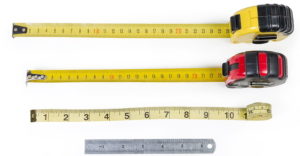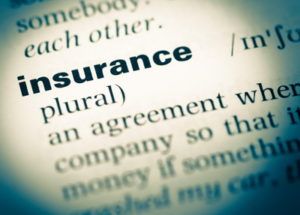 Betting companies are constantly looking for ways to entice customers and to maintain the loyalty of those that are already signed up with them. One of the most popular ways of doing so is by offering what is known as ‘insurance’ on a wealth of different products, with the best-known of these being Acca Insurance. This states that if one leg of an accumulator fails but the others win then you’ll get your stake money returned to you.
Betting companies are constantly looking for ways to entice customers and to maintain the loyalty of those that are already signed up with them. One of the most popular ways of doing so is by offering what is known as ‘insurance’ on a wealth of different products, with the best-known of these being Acca Insurance. This states that if one leg of an accumulator fails but the others win then you’ll get your stake money returned to you.
There are other types of insurance that work in a similar way, such as Faller Insurance, 90+ Minute Goal Insurance, VAR Insurance, Money Back If 2nd, 3rd or 4th, Beaten By A Head, Length or other distance. They all ensure that you’ll get your stake money back in some way, shape or form if you narrowly miss out on a bet being a winner, but are they good things to look out for and take when offered?
The Different Types Of Insurance
Insurances are a popular offer from bookmakers because they give the bettor a sense of value, even if that sense is sometimes false. Because of their popularity, new ‘insurance’ offers are popping up all the time as companies find new and inventive ways of appealing to punters, both new and old.
For that reason, this list is far from exhaustive, but we’ll still take a look at some of the most popular types of insurance that bookies offer.
Acca Insurance

Accumulators are amongst the most popular bets for people to place because of the manner in which they offer an opportunity to win a decent amount of money for a relatively small investment. The downside of accas is that they are very difficult to win, which is why the payouts on them can be so large. Imagine placing a ten-leg accumulator and winning nine of them, only to see it fall at the final hurdle. How annoying would that be?
Acca Insurance is designed to take the sting out of such a scenario by offering you your stake money back in cash or as a free bet in the event that your accumulator isn’t a winner because of just one leg. Sometimes there is qualifying criteria that must be reached, such as the acca containing a given number of legs as a minimum, but it pretty much always works in the same way: miss out narrowly, get a small reward as recompense, usually your stake back as a free bet.
Faller Insurance
 Bookmakers don’t always offer Faller Insurance, but those that do tend to have it as an offer for the biggest races. That means that the likes of the Cheltenham Festival or the Grand National might have Faller Insurance offered. If you place a bet with a bookmaker offering Faller Insurance on a given race and your horse falls at a fence, is brought down by another horse or unseats its jockey, you’ll get your stake money back.
Bookmakers don’t always offer Faller Insurance, but those that do tend to have it as an offer for the biggest races. That means that the likes of the Cheltenham Festival or the Grand National might have Faller Insurance offered. If you place a bet with a bookmaker offering Faller Insurance on a given race and your horse falls at a fence, is brought down by another horse or unseats its jockey, you’ll get your stake money back.
As with other insurance types, there are often minimum requirements that must be met, such as a minimum stake being placed, plus a maximum amount that they’re willing to pay out. It’s always worth checking out what a bookie is offering Faller Insurance on, so for example is it on the entire stake of an Each-Way bet or just the Win part of it? Likewise, how do they pay you your stake back? Is it cash or as a free bet?
90+ Minute Goal Insurance
 When Manchester United were in their heyday, they would score goals in what became known as Fergie Time. Others call it Squeaky Bum Time, whilst to most it’s simply known as the added time at the end of a match. Regardless, it is a goal scored right at the end of game, after 90 minutes have passed on the referee’s watch, and such goals tend to ruin pre-match bets placed by punters up and down the country.
When Manchester United were in their heyday, they would score goals in what became known as Fergie Time. Others call it Squeaky Bum Time, whilst to most it’s simply known as the added time at the end of a match. Regardless, it is a goal scored right at the end of game, after 90 minutes have passed on the referee’s watch, and such goals tend to ruin pre-match bets placed by punters up and down the country.
One way to avoid that heart-break is to bet with a bookmaker that offers 90+ Minutes Goal Insurance, whereby your stake will be refunded to you in some form or another if a goal is scored in the 90+ minute mark and ruins your pre-match bet. Often, bookies will only offer said insurance on certain matches and they’ll only do so up to a given amount of money, but it’s still a good way of protecting yourself from unneeded stress.
VAR Insurance
 The extent to which the Video Assistant Referee has changed the manner in which most people enjoy football matches cannot be overstated. There’s nothing quite as frustrating as seeing your team score a winning goal in the 87th minute of the match, knowing that it’s won you a load of money only to then see that the VAR has overruled it because someone’s toenail was offside. That’s where VAR Insurance can soften the blow.
The extent to which the Video Assistant Referee has changed the manner in which most people enjoy football matches cannot be overstated. There’s nothing quite as frustrating as seeing your team score a winning goal in the 87th minute of the match, knowing that it’s won you a load of money only to then see that the VAR has overruled it because someone’s toenail was offside. That’s where VAR Insurance can soften the blow.
It’s not offered by all bookmakers and even those that do offer it often only do so on selected matches, but the long and short of it is that you’ll get your stake returned to you as cash or a free bet if your winning bet becomes a loser because the Video Assistant Referee chooses to overrule a goal and disallow it. Usually it’s only on the 1X2 market, but different bookies have different rules and different offers when it comes to VAR Insurance.
Money Back If 2nd, 3rd or 4th
 The majority of insurance offers made by bookmakers are on things being extremely close to winning bets. The best example of this is perhaps the Money Back If Your Horse Finishes 2nd offer, which some bookies will stretch out to cover horses that come 3rd or 4th if they’re feeling generous. Regardless of how many places are offered, the insurance works in the same way and sees you get your stake back if your selection is nearly a winner.
The majority of insurance offers made by bookmakers are on things being extremely close to winning bets. The best example of this is perhaps the Money Back If Your Horse Finishes 2nd offer, which some bookies will stretch out to cover horses that come 3rd or 4th if they’re feeling generous. Regardless of how many places are offered, the insurance works in the same way and sees you get your stake back if your selection is nearly a winner.
Usually the bookmakers that offer this sort of insurance do so for punters that will stake a minimum amount of money on their bet, only allow it on horses with odds above a certain limit and only promise to give you your money back if there are four or more horses running in a race. As long as you meet these requirements by betting, say, £1 or more on a race with ten runners and on a horse with odds of 3/1 or higher, for example, you’ll get your money back if your horse comes close to winning but fails.
Beaten By A Certain Distance
 Perhaps even more annoying than seeing a horse finish second when you’ve bet on it to win is seeing it finish second because it’s been beaten by a nose, a head or a length. This can feel so infuriating because if the jockey had only driven the horse in question that little bit harder you’d have won your wager. The second-best thing that you can do is bet with a company that will give you your money back in the event of your horse being beaten by a certain distance.
Perhaps even more annoying than seeing a horse finish second when you’ve bet on it to win is seeing it finish second because it’s been beaten by a nose, a head or a length. This can feel so infuriating because if the jockey had only driven the horse in question that little bit harder you’d have won your wager. The second-best thing that you can do is bet with a company that will give you your money back in the event of your horse being beaten by a certain distance.
It’s not uncommon for such bookmakers to require you to bet on a horse with certain odds if you want to take advantage of this offer, such as 3/1 or higher. It also doesn’t need to be the exact length, provided the length that horse is beaten by is shorter than the length mentioned in the offer. In other words, if the offer days you’ll get your money back if your horse is beaten by a length but it’s beaten by a head that’s fine, but the reverse would not be true.
Why Do Bookies Offer Insurance?
 There are a number of reasons why a bookmaker might offer insurance, with the main one being that it is a good way of bringing in customers. The reality is that bookmakers aren’t stupid, so they only tend to offer such insurance on events that don’t happen all that often, so the chance that they’ll actually have to pay out on these kinds of insurance deals is actually remarkably rare. Even so, punters think they’re great so it’s win-win.
There are a number of reasons why a bookmaker might offer insurance, with the main one being that it is a good way of bringing in customers. The reality is that bookmakers aren’t stupid, so they only tend to offer such insurance on events that don’t happen all that often, so the chance that they’ll actually have to pay out on these kinds of insurance deals is actually remarkably rare. Even so, punters think they’re great so it’s win-win.
There’s also the fact that most bookies say that they will give you your money back as a free bet, meaning that they’ll almost certainly win the money from your in the long-run. Even bookmakers that offer your money back as cash know that you’re almost certainly going to reinvest it on another bet, so the likelihood is that they’ll still end up with your money in the end. They get to entice new customers, please current customers and win your money in the long-run, so it’s a no-brainer for most companies to make such offers.
Are These Insurance Offers Good Value?
 In essence, insurance offers are decent value for customers because they give you the chance to go again if you narrowly miss out on winning a bet. The problem is that Acca Insurance, as the main example here, lacks value because accumulators lack value. Yes, it’s great to see that you can win hundreds if not thousands of pounds from a £1 stake, but the truth is that the odds of it actually happening are even higher than that.
In essence, insurance offers are decent value for customers because they give you the chance to go again if you narrowly miss out on winning a bet. The problem is that Acca Insurance, as the main example here, lacks value because accumulators lack value. Yes, it’s great to see that you can win hundreds if not thousands of pounds from a £1 stake, but the truth is that the odds of it actually happening are even higher than that.
Insurance offers are good value in themselves, but if the thing that you’re betting on isn’t good value then the insurance offer is pointless on that front. Then again, if you stand to win £1,500 from a £1 bet on the results of ten different football matches, do you really care that the actual odds should have been closer to 2,300/1? The value might not be there in an acca, but getting money back for a narrow loss is never something to be sniffed at.
Should You Take Insurance?
 The simple answer to the question of whether or not you should take an insurance offer comes down to whether you were going to be placing the bet anyway. People who have never bet on a football match before shouldn’t be placing an accumulator just because they’ve seen that they can get Acca Insurance. Similarly, those that know nothing about horse racing would make a mistake if they placed a bet on the off chance they’d get their money back if their horse finished third.
The simple answer to the question of whether or not you should take an insurance offer comes down to whether you were going to be placing the bet anyway. People who have never bet on a football match before shouldn’t be placing an accumulator just because they’ve seen that they can get Acca Insurance. Similarly, those that know nothing about horse racing would make a mistake if they placed a bet on the off chance they’d get their money back if their horse finished third.
On the flip side of that, if you are a big fan of placing accumulator bets then it would be silly not to do so with a company that offers Acca Insurance, given the chance of you winning you stake money back for a narrow failure. Likewise people who know horse racing inside out would curse themselves if they placed a bet with a bookie that didn’t offer Money Back If Beaten By A Head only to then see their horse lose in exactly that manner.
In other words, if you’re placing the bet anyway then do so with a company that offers appropriate insurance, but don’t place a bet just to get the insurance if you’re doing so on a sport or an event that isn’t really in your wheelhouse.
